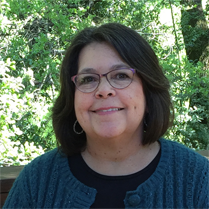 Encouraging Reluctant Readers with a Growth Mindset
Encouraging Reluctant Readers with a Growth Mindset
When my children were toddlers, they used to love story time. We’d pull out their favorite board book, they’d sit on my lap or snuggle on the couch, we’d make all the animal sounds as they pointed to the pictures and we’d retell the story using puppets. It was so much fun! [Read more…]

Discovering the joy of teaching while in high school, Jaime pursued her B.A. in English at Santa Clara University. She also received a teaching credential and a M.A. in Education Administration from Santa Clara University. Jaime taught English Language Arts at Rancho Middle School, motivating and inspiring young people to become effective communicators and contributors in their community. From being a Middle School English Language Arts/English Language Development teacher to becoming a stay-at home mom, Jaime is an education consultant who presents literacy workshops. Her workshops focus on a combination of her ten years of teaching expertise with tried-and-true experiences that she uses with her own children. Jaime is also a Teacher Consultant with the San Jose Area Writing Project. Jaime’s mission is to share effective reading and writing strategies with families to encourage literacy.
 As children begin school, parents expect that their child will progress through the grades with minimal issues. If learning issues should arise for their child, parents expect to resolve them by working with the teacher and supporting their child. Sometimes the child’s learning needs are greater than what the teacher can provide. Most often, a learning disability is identified through the school’s processes when a student needs more academic support.
As children begin school, parents expect that their child will progress through the grades with minimal issues. If learning issues should arise for their child, parents expect to resolve them by working with the teacher and supporting their child. Sometimes the child’s learning needs are greater than what the teacher can provide. Most often, a learning disability is identified through the school’s processes when a student needs more academic support. 

 Children are often curious about understanding the death of a pet or family member. You can read your child an age appropriate book or the story below about the death of a father when a child is a preschooler or early elementary student. When children lose a young parent to death, they can become very fearful that they may lose other significant family members at a young age. It is critical that we reassure our children when they hear about a friend or family member.
Children are often curious about understanding the death of a pet or family member. You can read your child an age appropriate book or the story below about the death of a father when a child is a preschooler or early elementary student. When children lose a young parent to death, they can become very fearful that they may lose other significant family members at a young age. It is critical that we reassure our children when they hear about a friend or family member. A Parent’s Response
A Parent’s Response